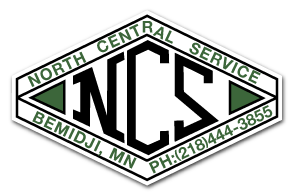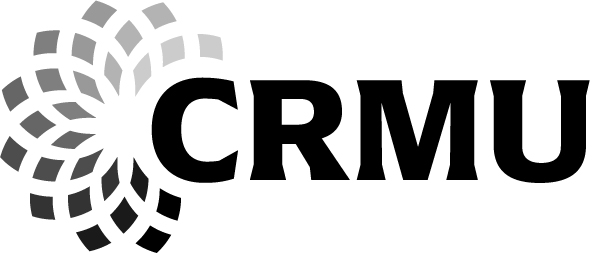Frequently Asked Questions
- CRMU 2017 Fiber-to-the-Home Network What is fiber-to-the-home (FTTH)?
When will this project start and when will it be completed?
Will my yard get tore up?
What is the difference from what I have now?
Why are we changing systems?
Will this cost me more?
Will this change my monthly charges?
Will I need to download anything?
Will someone need inside my house?
Will I need new equipment inside my house?
Will I have to do any rewiring in my house?
If I do not have CRMU communication services, will they still be running fiber to my house?
What would happen if I don't want fiber ran to my house?
What to expect during a power outage with fiber-to-the-home?
---------------------------------------------------------------------------------------------------------------------------------------------------------------------------------------------------
What is fiber-to-the-home (FTTH)?
A fiber-to-the-home or FTTH system is the delivery of a communications signal over optical fiber and is considered the "gold standard" for a communications network. FTTH systems deliver digital information more efficiently than traditional copper coaxial networks by providing higher bandwidth enabling more robust video, internet and voice services. Watch the short video below for more information:
When will this project start and when will it be completed?
CRMU has hired a company called North Central Services (NCS), from Bemidji, MN. to install our new network.
 NCS expects to begin construction in March/April and has until December to complete construction. After the outside plant is completed, CRMU personnel will cutover services to the new fiber network at each customer's home or business. We hope to have the project 100% complete by late Summer, 2018.
NCS expects to begin construction in March/April and has until December to complete construction. After the outside plant is completed, CRMU personnel will cutover services to the new fiber network at each customer's home or business. We hope to have the project 100% complete by late Summer, 2018.Will my yard get tore up?
A FTTH Network will require the installation of a new fiber optic cable to each customer's home or business. Our outside plant contractor "NCS" will be placing plastic duct in the ground through which the fiber optic cable will be pulled. The duct will be terminated on the side of the house into a new plastic enclosure. The placement of this duct to each home or business will be completed by digging/trenching/boring. NCS will be responsible for restoring all property/yards/etc back to their original condition after construction is completed.
What is the difference from what I have now?
FTTH networks have many advantages over current technologies. The key benefit is that it provides for far faster connection speeds and carrying capacity than twisted pair conductors, DSL or coaxial cable. Fiber cables also provide for a higher degree of reliability. Because fiber cables are made from glass, they don't generate electricity or need grounding which makes them resistant to atmospheric and electrical interference. Fiber networks are also the most "future-proof" networks. Optical networks are upgraded by changing the electronics that create the light pulses on the cable and not by replacing the cables.
Why are we changing systems?
As more people go online and those online use more and more bandwidth, the shared cable system that CRMU is currently using will not be able to keep up. By investing in a municipal fiber-to-the-home network, CRMU will have the necessary infrastructure to ensure businesses have fast, affordable, and reliable internet access; the old DSL and cable networks just don't cut it. CRMU's FTTH Network will improve productivity of existing businesses and attract new businesses to our community, allow individuals to work from home more effectively, support advanced healthcare and security systems, strengthen the local housing market and represent long term social investments and benefits in the form of better-connected schools and libraries.
Will this cost me more?
No. CRMU will fund the construction of this network from revenues received for services provided.
Will this change my monthly charges?
No. Your monthly charges will only change if you change your services provided by CRMU.
Will I need to download anything?
No. Nothing on the "customer" side of the network will change and you won't need to download anything.
Will someone need inside my house?
Yes. CRMU personnel will need to install a new fiber-optic network terminal (ONT) at each location. This ONT will be placed inside of homes and businesses and will convert the fiber optic light signals into your traditional CATV, voice and internet services. Our technicians will contact each customer and make arrangements to install the ONT and cutover your communciation services to this new network.
Will I need new equipment inside my house?
No. As a customer - your telephones, routers and televisions will continue to work as they do today.
Will I have to do any rewiring inside my house?
No. As a customer - your telephones, routers and televisions will continue to work as they do today. CRMU technicians may be required to do some rewiring to accommodate the new ONT; however, the customer will not be charged for any of these services.
If I do not have CRMU communication services, will they still be running fiber to my house?
Yes. CRMU has planned to install a new fiber optic service to every house and business in Coon Rapids.
What would happen if I don't want fiber ran to my house?
As part of this project, CRMU will install a new fiber service to each home and business at no cost to the property owner. However, any property owner who elects not to have a fiber service installed with this project will be required to pay the full cost of any future fiber installation. According to a 2015 FTTH Council Study - their report showed that having a gigabit fiber optic connection can add as much as $5,437 to your home's value!
What to expect during a power outage with fiber-to-the-home?
Fiber to the home service works differently than our previous hybrid-fiber-coax (HFC) network. With our HFC network, CRMU supplied the electrical power over the coax lines to power the telephone in your home. Since the new system is entirely optical and can carry no power, the electronics placed inside your home must be locally powered. What this means is that a customer must install a battery backup inside your home if you want your landline phone to work during a power outage.
There are also a few things to keep in mind to ensure your telephone service works during power outages. Phones that require commercial power (i.e. need plugged into an outlet) to operate will no longer be functional due to the power outage. This includes practically all cordless phones on the market. The handset will still likely power up, but since the commercial power is out at the base unit, no calls will be passed. The best way to keep telephone service during an outage is to keep at least one plain old telephone in your home in a convenient location. To see more details about a power outage and battery backup options click here.
---------------------------------------------------------------------------------------------------------------------------------------------------------------------------------------------------
